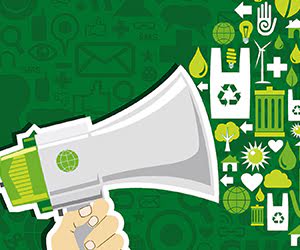
Green Power
February 22, 2020
8 minute ReadTwenty years ago in the car wash industry, little thought was given to sustainability or being ‘green.’Power was cheap and water even cheaper. Car washes were built with two objectives in mind: clean a car fast andclean it well. Fast forward to today and customer expectations, regulatory oversight and growing economicconstraints demand that the car wash industry respond in kind. Operating sustainably is a necessity that cannotbe ignored and offers tangible and intangible benefits that go beyond an owner’s bottom line.
Green Choices
When selecting ways to build or retrofit your wash to include sustainability, hearing how many gallons of wateryou will save may not be a significant motivation for change. But when that savings is framed in terms ofdollars and cents, the reason for a change becomes clear. In some instances determining the return oninvestment, or ROI, of a project is simple. If a project costs X up front and saves you Y over its useful life,then your return on investment is positive if Y is greater than X. In other instances, the intangible benefitsin terms of public perception and employee morale may be difficult to measure but have big pay-offs down theroad.
11 Sustainable Measures to Incorporate in Your Wash
- Switching to online reporting vs. paper document storage
- Using ultra-concentrated solutions to reduce chemical packaging
- Switching to LED lighting vs. metal halide
- Utilization of VFD motor controls
- Properly sized nozzles on application arches
- Metered chemical dosing and application technology
- Biodegradable and non-APE/NPE cleaning fluids free of phosphates
- Using reclaimed water to reduce fresh water usage
- Using smart technology to control operations and reduce power intake
- Solar energy re-coup
- Drought-resistant landscaping
Jeffrey Blansit, president and chief executive officer of Water Works Auto Spa in Austin and Dallas, Texas, hasgone all-in on sustainability measures and has seen returns that go beyond profits. “Using and promotingsustainability measures can only benefit the car wash owner, the bottom line and the industry as a whole,”Blansit said.
Water Works Auto Spa’s newest wash was recently built in conjunction with guidance from their equipmentprovider, Macneil Wash Systems, to fully utilize all of the latest technologies and sustainability measuresavailable in the industry to date. “This was done to ensure we provided a superior user experience whilealso employing the best practice measures of sustainability and conservation,” Blansit said. The new WaterWorks Auto Spa employs a wide array of methods to conserve resources and reduce the impact on their bottomline.
Capturing and reclaiming water are some of the more common ways of reducing fresh water usage. Water Works AutoSpa uses 31 gallons of fresh water per vehicle. Upwards of 55 gallons of reclaimed water per vehicle is filteredthrough a PURCLEAN PW350 unit and used on wheel blasters, underbody spray, brush lubrication and rinsing, trenchflushing and chain rinse. Another opportunity to creatively re-use water is with the capturing of reject reverseosmosis (RO) water. Many units produce one gallon of reject water for every two gallons of RO concentrate,equating to upward of 2,500 gallons of RO reject water a day. The reject water is frequently routed directly tothe trench or city sewer, which fails to properly utilize this resource. Water Works Auto Spa captures thereject RO water and applies it at various stages of the wash. Properly sized nozzles on all applications equateto 4 to 7 gallons of fresh water saved per vehicle.
More Than Water
Water saving measures take much of the focus in the industry, but there are many opportunities to creativelyreduce both electrical and chemical consumption throughout the wash, as well. Variable-frequency drive (VFD)motor controls are utilized on almost all brush drive motors and high pressure pumping stations at Water WorksAuto Spa. The VFD controls reduce the power drawn at start-up as well as during wait times between vehicles. Airgate controls installed on dryers shut off the incoming air supply to the producer housing, reducing the forceplaced on the motor between vehicles and lessening the draw rates from the electrical provider.
The proper application of soap and chemical use is another important element of sustainability within the carwash. Pressurized and metered chemical injection equipment allows Water Works Auto Spa to fine-tune its chemicalusage for each vehicle and application being utilized. “The use of this system reduces our waterconsumption of fresh water by more than 40% over conventional chemical application measures,” Blansitsaid.
The Return On Sustainability
With some of the Water Works Auto Spa locations being built for sustainability and others still waiting to beupdated with the latest technology, Blansit sees the return on his investment in sustainability in calculable,tangible ways each day. “The reduced operating costs of our new locations are real on a day-to-dayoperating basis and evidenced in lower overall monthly operating costs compared to the older site,”Blansit said. Blansit credits VFD motor controls, air gate controls, use of reclaim water, use of RO rejectwater and pressurized chemical dispensing with the largest ROI, to date.
The money saved from Water Works Auto Spa’s sustainability efforts are reinvested into the car wash andpays dividends in countless ways. “We redeployed the found working capital into our customer experiencemarketing campaigns. We also increased our vehicle through-put per hour, allowing us to wash more vehicles perday,” Blansit said. Most significantly, Water Works Auto Spa increased employee wages. “This secureda more engaged employee who is motivated to lead with greater purpose, leading to greater profits and long-termcustomer satisfaction.”
Intangible Benefits
While some car wash owners utilize sustainability efforts to enjoy an improved bottom line, others employ greenmethods as a means of survival.
“Our biggest issue with water is fighting the perception of the public and the amount of water that theyactually think that we use,” said David Swenson, owner of Arbor Car Wash in Austin, Texas.
While those familiar with the car wash industry understand the benefits to the environment and the public that acar wash provides, many consumers fail to realize the important water saving role that car washes play. “It’sextremely hard to communicate that to our customers. We are so visible to the public, they go out there and theysee through our windows that we have all this water going on the car and they don’t understand that thewater is reused. The water use is not as heavy as it seems,” Swenson said.
For Swenson, the impact of this misperception comes to a head during times of drought or flooding. Arbor Car Washoperates at about 25 gallons a freshwater per vehicle, an incredibly low number in the industry. A typical carwash uses far less water than the average white tablecloth restaurant, and Arbor Car Wash does not even place inthe top thousand water users in the Austin area. Professional car washes use 60% less water than washing fromhome and also protect the water system against dangerous chemical run-off, according to data collected by theU.S. Environmental Protection Agency. Notwithstanding, last fall when flooding hit the city filtration systems,car washes were the only business shut down in the metropolitan area. “If the public realized how littlewater we used compared to others, they would be more understanding. The local government often likes to put on abig show about how they’re stopping waste and the car wash industry becomes an easy target,” Swensonsaid.
Operating in an area where the car wash industry is at its most vulnerable, Swenson has made great efforts towardimproving the public perception of both Arbor Car Wash and the car wash industry as a whole. To combat thevisual of water usage and add to the image of a green car wash, Arbor Car Wash installed solar panels. The panelserves as a distinct visual reminder that the car wash industry is investing in sustainability. Swenson placedmonitors showcasing the daily and yearly savings from the panels in the waiting room of his wash. While ArborCar Wash may never see a tangible return on investment from the installation of the solar array panel – itwas $126,000 and only yields a 3% savings on their electric bill – the intangible return of improvedpublic relations cannot be ignored.
Green Messaging
‘Greenwashing’ is now a common term in business. It is used to refer to the apathy consumers feelwhen continuously hit with advertising regarding sustainability in a market inundated with environmentalmessaging. Swenson said there are other challenges to providing consumers with a green message. “Explainingto consumers how we conserve water is often a double-edged sword,” Swenson said. Arbor Car Wash utilizesreclaimed water in their facilities. Swenson found that consumers often demand sustainability, but shy away fromthe reality of green choices. “When people think of reclaimed water, they think of sludge out of thesewer. The consumer doesn’t want that on their car,” Swenson said.
Swenson ran into a similar problem when trying to sell reclaimed motor oil. Better for the environment and provento be as effective as new oil, not even a Prius driver would purchase the reclaimed oil, he said.
Tricia Knott, owner of Green Forest Car Wash in California, reports a similar experience with her customers andher sustainability messaging. Green Forest Car Wash boasts the slogan, “Eco-friendly to the core. Savingour resources one car at a time.” Knott is a member of ICA’s WaterSavers® program and recycles100% of the water used at Green Forest Car Wash. Knott also focused her efforts on reducing energy use pervehicle, but learned there is a balance to be struck between sustainability and customer satisfaction. She firstinstalled a 15 HP dryer in her car washes in an effort to save energy. The fans were effective, but the lowhorse power necessitated the dryer touch the car. Customers were not pleased. “The consumer didn’tcare if the fan used less energy. They weren’t happy with their car being touched,” Knott said.Knott was forced to sacrifice the environmental benefit and switch to a more powerful fan that used more energybut didn’t touch the car. “Customers aren’t always focused on environmentalism, but on theirend experience,” Knott said.
Sustainability in the car wash industry is a balancing act between cost, efficiency, regulations and theconsumer. When approached correctly, the pay-off to the community, the environment and the owner will be longlasting. To learn more about incorporating sustainability in your wash, visit ICA’sWaterSavers® program online for examples and support.
3 Ways To Incorporate Sustainability Measures Into Your Marketing
Keeping your customer informed of the environmental benefits of a professional car wash is a key component tothe industry’s future success. John Pabon, founder and chief advisor of Fulcrum Strategic Advisors, astrategic communications firm specializing in sustainability marketing, suggests the followingstrategies:
Stories over statistics. Sustainability marketers love numbers. Unfortunately, most peopledon’t. It’s important to take these numbers and make a fool-proof story out of them. Numbers addvalidity, but the story is what’s going to draw the audience in.
Drip feed.Instead of throwing everything at the audience at once, consider a drip-fedmarketing approach. Take one subject area and dive deep into it with a campaign. Then, tackle anotheraspect. That not only stretches out your marketing but also ensures enough real estate for readers to trulyunderstand what you’re doing.
Develop advocates. Don’t forget that marketing isn’t just for externalcustomers. Often, internal stakeholders can be a company’s biggest advocates. Make sure everyone atthe business understands what the company means by sustainability and truly believes in its mission. To dothat, they need to know all the great things the company is already going. When your employees become youradvocates, the marketing takes care of itself.








